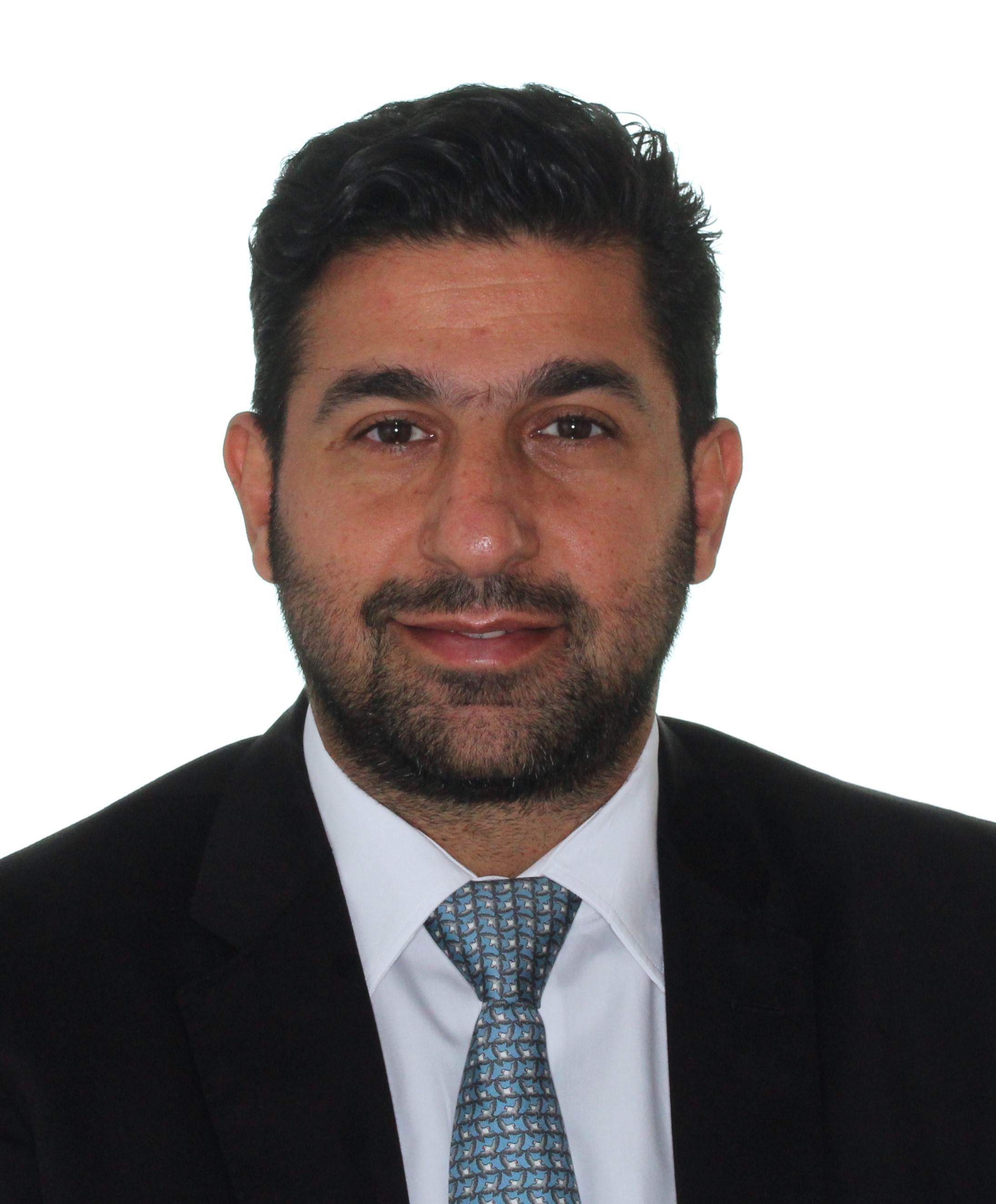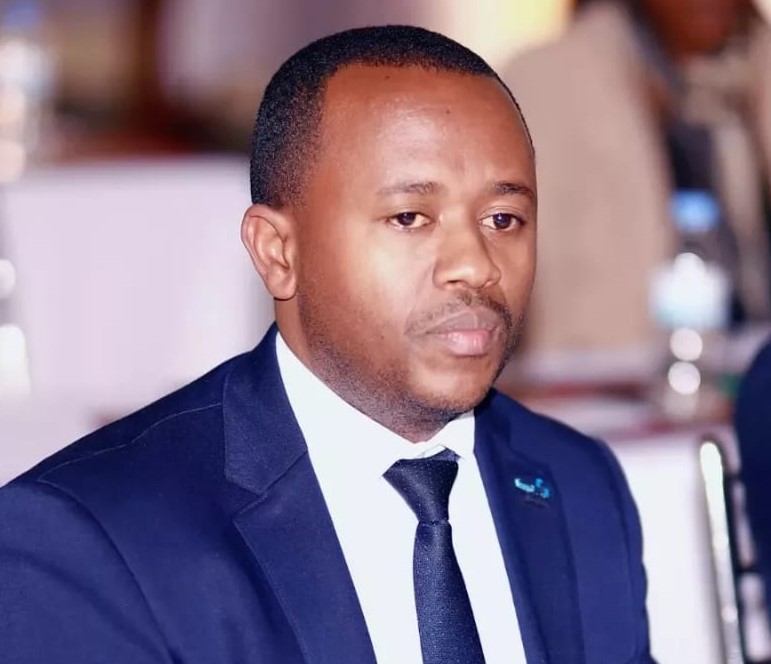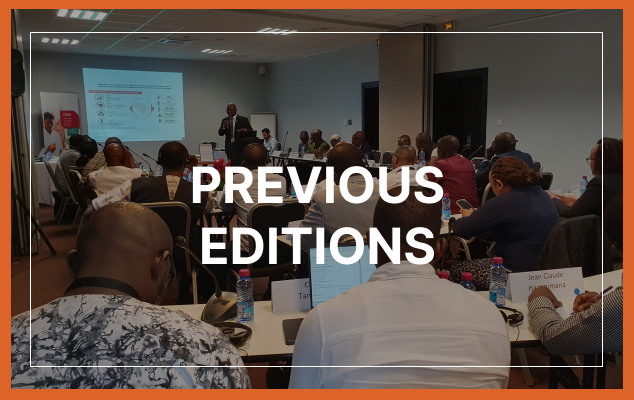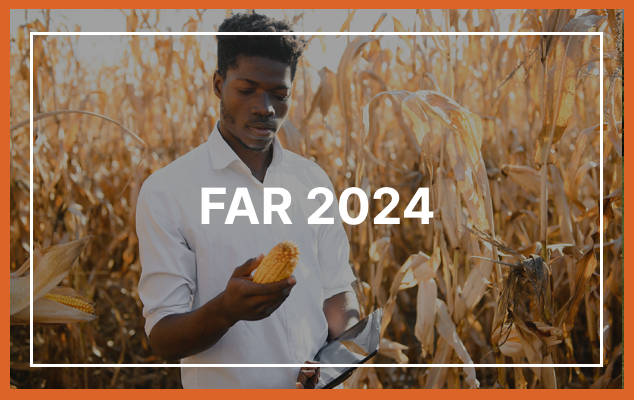Participants' feedback from the 2024 e-learning session
The 2024 edition attracted again great interest from agricultural and rural finance professionals. ADA received over 1,200 applications and 200 candidates were selected for the online session. Here are some testimonials from the participants:

“I'm delighted to have participated in the 2024 edition of the Agricultural and Rural Finance Training Programme. Over a month, we followed five modules on financial products and markets, and risk management strategies delivered by top-quality experts. These are easily digestible capsules that can be used to improve current practices or innovate in the development of agricultural financial products and services.
The modules were supplemented by webinars with various experts on climate finance, financing agroforestry and investment in agriculture.”
Laté TETE, Director of Technical Operations and Projects at MIFA (Mechanisme Incitatif de Financement Agricole), Togo

“I have had an incredibly enriching experience this April 2024, fully engaged in the Agricultural and Rural Finance Programme. This program seamlessly integrated theory with hands-on practice, pushing participants beyond mere problem recognition to actively seek solutions in agricultural and rural finance. Through the ‘Discussion Forum’, we engaged in lively exchanges on diverse agricultural topics, drawing insights from fellow participants representing various African nations. We exchanged knowledge and gleaned from successful initiatives adaptable to our respective countries, mindful of our unique contexts.”
Simeon ALFA, Agribusiness Finance Specialist, Nigeria

“Out of approximately 1200 applicants for the Agricultural and Rural Finance Program (FAR 2024), I was fortunate to be selected as one of the 200 participants. This program is exceptionally well-structured and insightful, especially for someone like me who is actively involved with smallholder farmers at a grassroots level.”
Olive Chilenga, YPARD Country representative to Malawi
Testimonials from participants in the session in Kenya
The face-to-face session took place from 21 to 26 October in Nairobi, Kenya. It brought together 40 people selected from the best participants in the introductory online session in April. The participants came from 19 African countries and represented a variety of institutions, including microfinance institutions, banks and regulatory authorities.
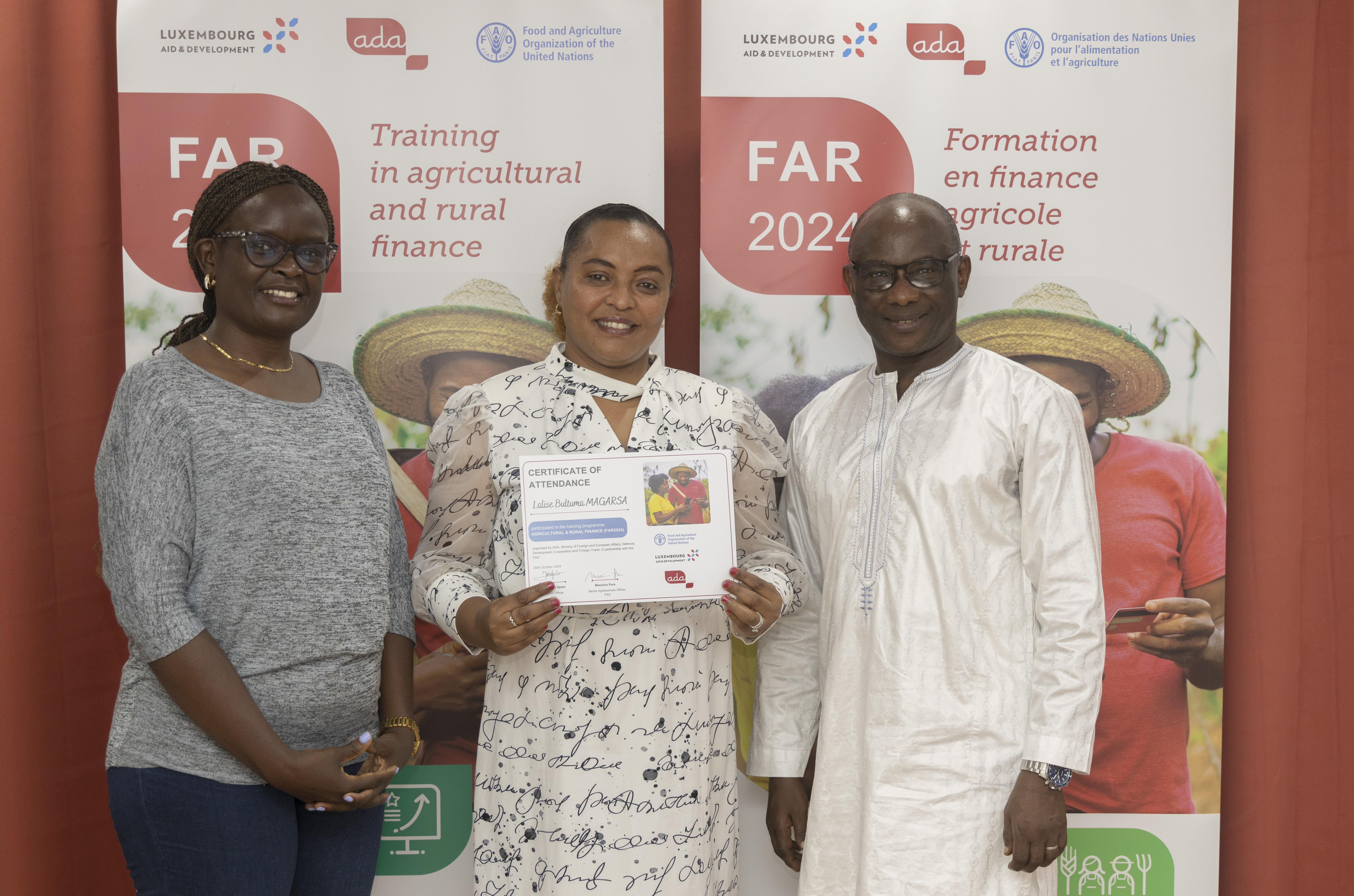
"I learned that innovative and collaborative financing mechanisms, supported by technology and agricultural insurance are essential for overcoming challenges in the agricultural sector and improving the livelihoods of smallholder farmers."
Lalise Bultuma MAGARSA, Buusaa Gonofaa, Ethiopia
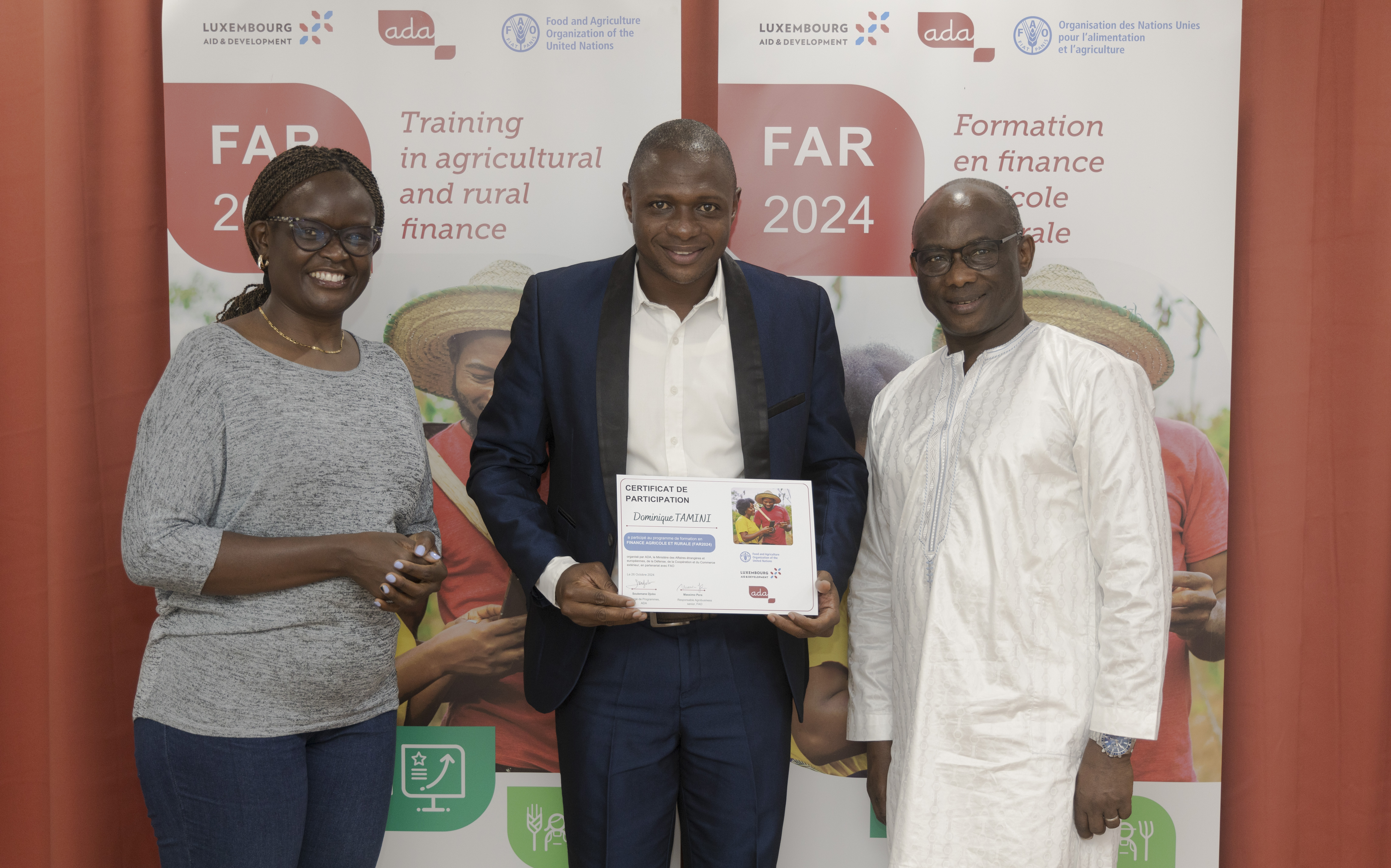
"I am returning with a wealth of knowledge, enhanced skills, and valuable insights gained from this training course. I will strive to put these to good use within the Cooperative, benefiting our members and everyone involved in the agricultural sector."
Dominique TAMINI, Coopérative d'Epargne et de Crédit de Ouagadougou, Burkina Faso
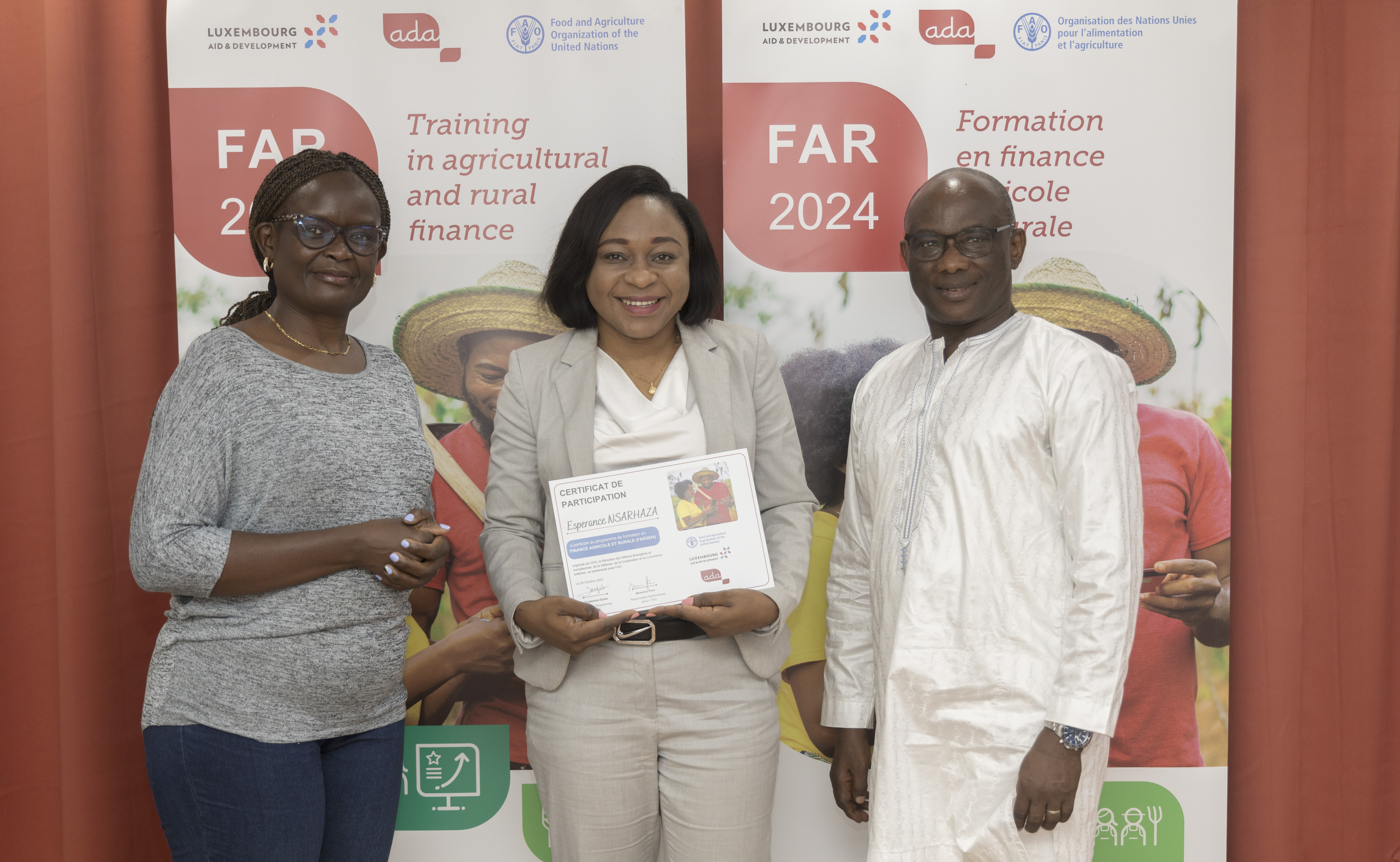
"This practical training course on Agricultural and Rural Finance (ARF), which expertly combines online and in-person formats, is truly remarkable! It serves as an invaluable resource for any professional in inclusive finance. The enriching modules on market opportunities and product design, digital financial services, and climate finance are essential for better serving rural communities and promoting their sustainability."
Esperance NSARHAZA, Equity Bank, Democratic Republic of the Congo
Feedback from the 2023 e-learning session

Participants' feedback from the 2023 e-learning session
“T
he FAR training was awesome! Every session was so innovative, informative and instructive. Excellent facilitators and support team! I’m really grateful for the opportunity to participate in FAR 2023.The programme positively impacted my career and approach to structure agribusiness finance. I am excited at the value I can add to the agribusiness finance space in Africa, through tailor-made product development for example.”
— Emmanuel Oluwole Makinwa,Team Lead, Agribusiness Group Access Bank Plc Nigeria
“The Agricultural and Rural Finance (FAR) programme is very interesting, with course modules delivered at a good pace, and clear and illustrated content. Forum questions are relevant, and the presentations and learning techniques are effective. The topics discussed in the webinar are all important and current, as demonstrated by the fourth week on climate finance.The programme is very useful to me, as it addresses topics that are part of my day-to-day work. In terms of value chains, we’re currently considering developing products that are better suited to the needs of the various parties involved, while taking into account how they’re connected. We also have an ongoing project on digital financial services.
I thank all participants for their involvement as well as the ADA and FAO teams and the speakers who contributed to the 2023 FAR programme for their availability.”
— René Birame NDIAYE, Agricultural Manager at Crédit Mutuel du Sénégal
“As an operator in the microfinance space, many times we shy away from funding farmers because of the uncertainties and the risk associated with agricultural loans. I think the FAR 2023 introductory e-learning session has demystified the subject of “agrifinance.” I have gained useful insight into farmer segmentation as well as design and delivery approaches for agrifinance. I would certainly recommend this course to anyone interested in understanding its dynamics.”
— Andrew Amedu, Executive Director, Operations ASHA MICROFINANCE BANK NIGERIA
“What a great training to start off my year! As an expert who is deep in agricultural finance, FAR 2023 has been a very valuable training. The course content was quite relevant to my work which entails financing of smallholder farmers in the rural sector. The aspect of agricultural value chains came out very strongly and for once I’m able to differentiate upstream and downstream activities and risks associated with each. The content on agricultural insurance, credit analysis, risk management, product design and digital finance came out very strongly and synchronizes with what I do. My special appreciation to FAO and the ADA team for giving me this life opportunity. I’m forever indebted. Sharing experiences and knowledge with other participants was phenomenal. As the training comes to an end, I’m brighter, wiser and gained skills and knowledge that will be useful in the next phase of my career which entails supporting agricultural finance, noting the agriculture sector is one of the key focus sectors in my bank as we continue to transform and impact lives and communities in Kenya and Africa.”
— Veronica Muthara, Head of Credit Analysis at Family Bank Ltd, Nairobi Kenya
“I am very pleased to have participated in the first edition of the FAR programme in 2023. The modules presented during this e-learning course have given me a better understanding of the market opportunities available to my institution, and of how to revise and develop its digital services for the benefit of our small rural farmers. Discussions in the forum represent case studies that are very useful to us.”
— Antoinette BAZI DAKIO, Deputy Director of the Mutuality Women and Development of Burkina MUFEDE-B
“I really appreciate how this online course was organized which lasted four weeks in asatisfactory manner. I have learned much more technical knowledge which is exactly related to my professional development at Taakulo Somal Community as Senior Agricultural & Rural Finance Project Manager.
I have obtained in-depth knowledge concerning the usefulness of the main topics of market assessment & product design, financial market assessment for the agricultural sector, digital financial services, financing mechanisms for agricultural value chains, risk management in agricultural finance & agricultural insurance. During the online sessions, I shared my professional experience in the field of agricultural & rural finance with other participants.
Lastly, I would like to thank facilitators and participants who got the opportunity of participating in the training.”— Hassan Aidid Madar, Senior Agricultural & Rural Finance Project Manager Taakulo Somali Community
“I am so happy to have had the chance to participate in the 2023 FAR programme because I learned a lot. Everything I learned deepened my understanding of financingthe agricultural sector, including identifying market opportunities, designing suitable financial products – including managing related risks, segmenting the smallholder group, designing a digital financial service and the issues surrounding agricultural insurance. Now that I’ve finished this programme, I’m interested in continuing training with a view to achieving a qualification.”
— Ibn-Saïd AKOUGBE, Economist-Statistician, Manager of externally funded projects at the National Microfinance Fund of Benin
FAR 2022 e-learning

Franklin Fosack FONKENG
Interim Director-General of the microfinance institution FIDEV CAMEROUN SA in Cameroon
“It is ideal training for any expert in agricultural finance. Yes, the content of the course is dense, but it provides key notions on agricultural and rural financing, credit analysis, risk management and product development. I would sincerely like to thank the ADA team, the FAO trainers and the participants for sharing knowledge that will certainly be of use in one way or another. I hope that several other institutions can benefit from the richness of this information so that we can create sustainable impacts together in our communities”.
Kouakou Hubert KOUASSI
Branch manager of the microfinance institution CEDAICI SA (Savings Bank for Agricultural and Industrial Development) in Ivory Coast
“I would like to thank the teaching and technical teams of ADA and FAO for enabling me to participate in the agricultural and rural finance training. They showed a high level of mastery of the subject. I would also like to thank the participants for the time we spent together and their remarkable sharing of experiences”.
Pious ASANTE
Gender specialist, Food and Agricultural Organisation of the United Nations (FAO), Regional Office for Africa (Ghana) / Sub-regional Office for West Africa (Senegal)
“I was fortunate to participate in the training. As a gender and rural development specialist, I was expecting to be enlightened by experts en finance and agrobusiness on opportunities in the development of financial and insurance products for small farmers and agricultural entrepreneurs, and in particular for women and young people. I was able to interact with finance and development experts, who shared their experiences as financial institutions. I would like to thank my supervisor and the training providers for the richness of the sessions, their availability and their advice”.
Boubakar THIOMBIANO
Director of Operations and Follow-up-Evaluation of the National Inclusive Finance Fund of Burkina Faso
“I really valued the training. It was an occasion for me to update my knowledge in the field of agricultural and rural finance. In my day-to-day work this will help me to improve in the modelling of financial products and services for the benefit of the agricultural sector and the rural world”.
Pascal SEMEVO
Polyvalent facilitator in the project to support agricultural development and access to the market (PADAAM) for the Framework Programme of FIDA interventions in the rural environment (ProCaR) in Benin
“I would like to thank ADA and the experts who contributed to the organisation of the training. They taught me the notions and tools that facilitate access by small farmers to finance through loans or subsidies. The courses were clear and easy to assimilate, and the time one had to dedicate is moderate, which means one can follow the course without it having too much impact on one’s work. I am already applying what I learned in my own organisation in order to improve access to financial support, loans and subsidies in particular, and also to producers I work with within my remit in the PADAAM project at ProCaR Benin. I also plan to share this knowledge with my facilitator colleagues who were unable to participate in the training sessions”.
Seydou Kote
Director of the Mutuelle d'Epargne et de Crédit (MEC) JOUNLIMANI, Burkina Faso
Which organisation are you from?
I come from the Mutuelle d'Epargne et de Crédit (MEC) JOUNLIMANI, which in the local language Gourmantché means "patience is a golden path". The head office is based in Bogandé in the east of Burkina Faso. Our mission is to contribute to the sustainable improvement of the material and social wellbeing of our members by collecting savings and granting loans. We invest 90% of our financing in agro-pastoral activities.
What do you expect from the FAR training?
Given our area of intervention, with its high agro-pastoral potential, I hope to benefit from the tools and expertise needed to identify, design and develop products and services adapted to the needs of our members.
To what extent will you be able to apply what you have learned within your organisation after the training?
Any process of learning and developing new products requires time and human, material and financial resources. For this reason, in agreement with my collaborators and the elected members, I have planned to develop a plan for the restitution of knowledge learned, which should then be implemented in the field with the members. This will enable us to identify how to design new agricultural financial products and services.
What do you like most about the e-learning session so far?
I appreciate the flexibility of the programme, the diversity of the speakers and the richness of the topics covered, both in the courses and during the webinars. The discussion forum also encourages knowledge and experience sharing.
Amer Hariri
Willis Towers Watson Regional Reinsurance Manager for French-speaking Africa, Senegal
Which organisation are you from?
I joined the Senegalese subsidiary of insurance and reinsurance broker Willis Towers Watson in 2019. My role is to provide financial support to my clients through reinsurance capabilities, with the aim of developing reinsurance services in Francophone Africa. I will also provide them with the necessary information to design and implement various, specific insurance products.
What do you expect from the FAR training?
On a personal level, I am passionate about agriculture and the African continent is an integral focus of my work. The FAR training will help me to better understand and explore the specificities and financial needs of farmers (or other actors in the agricultural sector), especially in West and Central Africa.
To what extent will you be able to apply what you have learned within your organisation after the training?
The knowledge gained from the FAR training can help us to design micro-insurance products adapted to our target population. In order to do this, it is necessary to understand the agricultural environment in Africa, the specific financial needs of the stakeholders and the risks they face. This, in my opinion, will enable us as brokers to better expose the agricultural insurance product to insurers and reinsurers. This will give them the confidence to increase the level of acceptance of the product on the one hand and to invest more in agricultural microinsurance on the other.
What do you like most about the e-learning session so far?
The e-learning session is well structured and the lessons are easy to assimilate, especially by participants who are new to agricultural finance. The webinars are my favourite part, because of their interactivity.
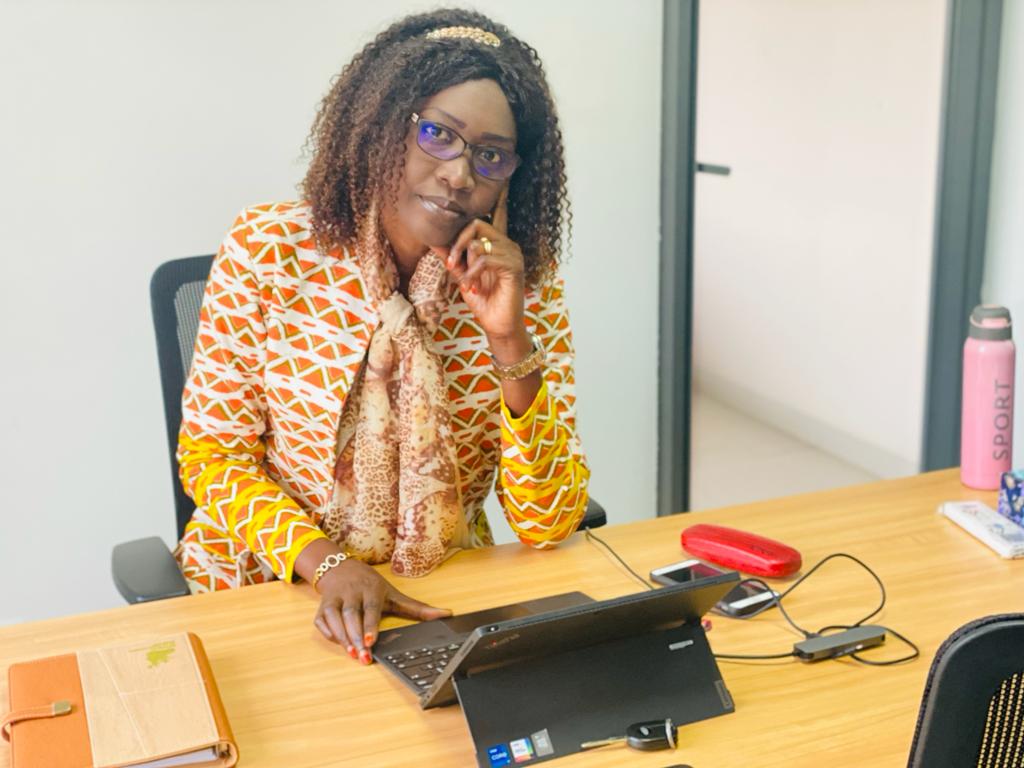 Agnes Clotilde Diene
Agnes Clotilde Diene
Head of Operations at VisionFund Senegal Microfinance, SA (VFS Microfinance, SA), Senegal
Which organisation are you from?
VisionFund Senegal Microfinance, SA is a subsidiary of VisionFund International (VFI), whose mission is to provide sustainable financial and non-financial services to poor entrepreneurs, particularly women, in World Vision Senegal's areas of intervention. We seek to increase their income and reduce the poverty level of the communities in general to improve the well-being of children in particular.
What do you expect from the FAR training?
I expect to understand and use the market assessment tools so that I can apply them in my daily work. I would also like to see to what extent the lessons learned will allow me to improve the effectiveness of the institution's strategy, in particular related to our agriculture portfolio.
To what extent will you be able to apply what you have learned within your organisation after the training?
I will be able to improve the institution's agricultural financing strategy and further control the growth of the agricultural portfolio.
What do you like most about the e-learning session so far?
I appreciate the fact that I can arrange my own schedule for the courses. I find the content of the modules clear and the additional reading useful as it can be used even after the course.
Emmanuel Nzanana
Operations Manager at RADIANT YACU Ltd, Rwanda
Which organisation are you from?
I come from RADIANT YACU Ltd, a dedicated Microinsurance Company in Rwanda. Our mission is to improve our clients’ lives through the provision of innovative and customer-centric inclusive insurance products.
What do you expect from the FAR training?
I expect to gain more knowledge about our segment (low-income earners) and how that knowledge can help us to design suitable solutions. I also expect to learn how our planned products for the agriculture sector respond to the need of the financial sector in terms of risk mitigation and to the risks low-income earners. Finally, I hope to gain insights or experience from other participants who work with agriculture insurance products and how technology can be leveraged to serve our segment.
To what extent will you be able to apply what you have learned within your organisation after the training?
I will share the knowledge with our staff in terms of training, sharing materials and engage discussions to direct them, especially in designing other value chains in agriculture insurance. We have ongoing projects I head and coordinate and it will be a good time to use the acquired knowledge.
What do you like most about the e-learning session so far?
I like the interaction with other participants. I find the materials good and well-prepared with case studies. I like the fact that we can share our knowledge through webinars by facilitators. Finally, the training introduced us to platforms of information like Global FINDEX and FAOSTAT.
FAR 2021 e-learning and in-person

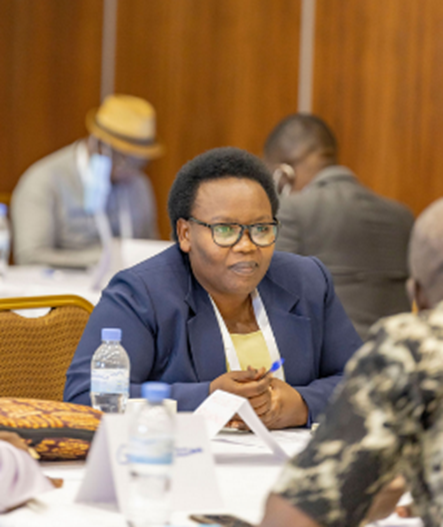 Chantal Uwamariya
Chantal Uwamariya
Managing Director, Cooperative of progress & financing INEZA, Rwanda
What was the most interesting and useful aspect of the FAR training?
The content of the modules, the methodologies and the participatory approach allowed learning
from each other’s experience in different countries. I like the practice-oriented lessons using many case studies. The agricultural and rural finance modules are very useful as they are needed by most financial institutions and society in general.
What was the attraction of a hybrid programme (online and then in-person)?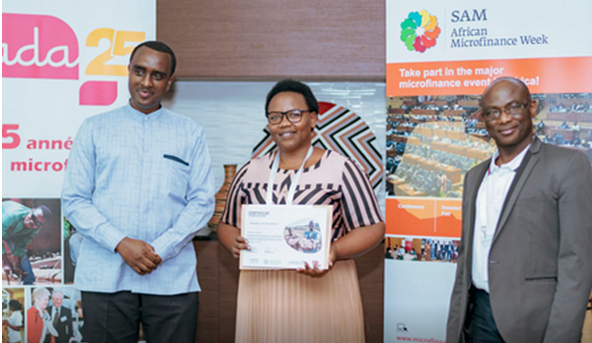
The online session convinced me to attend the following modules on agricultural rural finance. Participants' and facilitators' discussions helped to learn from each other due to different cultures, opinions and knowledge, especially on how to tackle issues in the agricultural sector and how to mitigate them to increase access to financial services.
What aspects of the training have you used in practice since the training?
Learning does not start and stop with the training session. Even before the training, I thought about what I wanted to learn. And then during the training, I aligned the content with the reality of our institution and competitors, job roles and responsibilities. I then planned to provide refresher courses for staff in my institution.
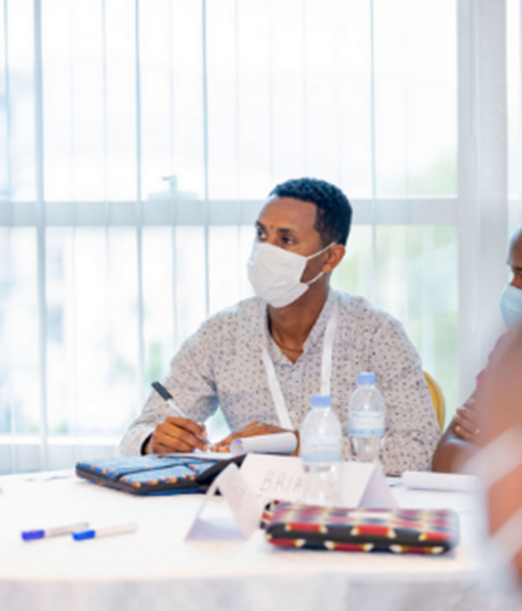 Yifredew Adamu
Yifredew Adamu
Senior Loan Officer, Development Bank of Ethiopia
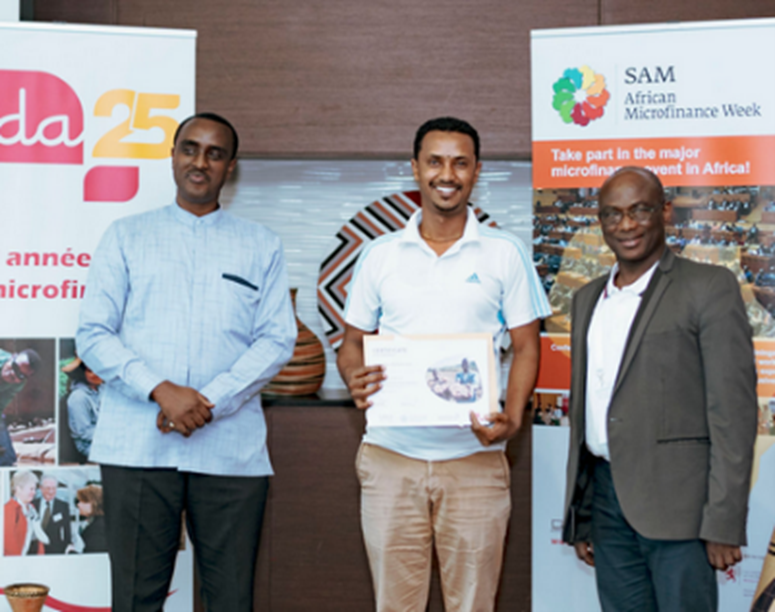
The online and face-to-face training courses gave me an in-depth understanding of the financing mechanisms in agricultural value chains, agricultural insurance for smallholder farmers, risk management in agricultural finance and in digital financial services for agricultural finance! It is really imperative to see agriculture finance grow and come up front to feed and serve our Africa and the world more globally. Because I am now walking into my corporate life, the tips and trainers' experience shared are going to be very useful for me and the organisation that I work for.
 O. Cedrick Montetcho
O. Cedrick Montetcho
Investment Director, Financial Institutions - West Africa, Senegal
What was the most interesting and useful aspect of the FAR training?
The real-life setting is really interesting. In small groups, we had to put ourselves in the shoes of managers of agricultural financing institutions and create a product according to the type of risk, define risk management policies according to the value chain method or integrate agricultural insurance products into the evaluation of an agricultural financing file.
The fact that the presentations are given by experts such as insurance company directors, representatives of public and multilateral organisations, or private players in the agricultural sector gives a comprehensive view of the subject.
What was the attracton of a hybrid programme (online and then in-person)?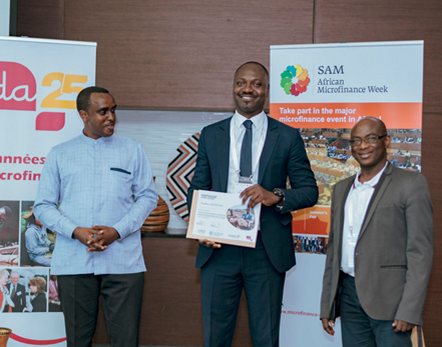
The online programme allows you to acquire the theoretical basis and prepare for the practical phase. It also allows great flexibility: I was present at my post, reachable by my clients and I had time slots reserved for the FAR courses. This meant that the sales momentum was not lost at the beginning of the year.
The advantage of the face-to-face programme is that it is more condensed, as it is preceded by an online theory phase. In one week, I was able to see the relevance of the thematic theory through practical cases. My employer at Oikocredit was more sensitive to this way of learning because we were in a period of Covid-19 and our farmer partners had few international purchase contracts. The face-to-face part allowed me to consider new financing techniques.
What aspects of the training have you applied since the training?
In 2022, with our insurance brokers, I plan to explore the possibility of developing a risk cover product similar to the ones I saw in the training that have performed well.
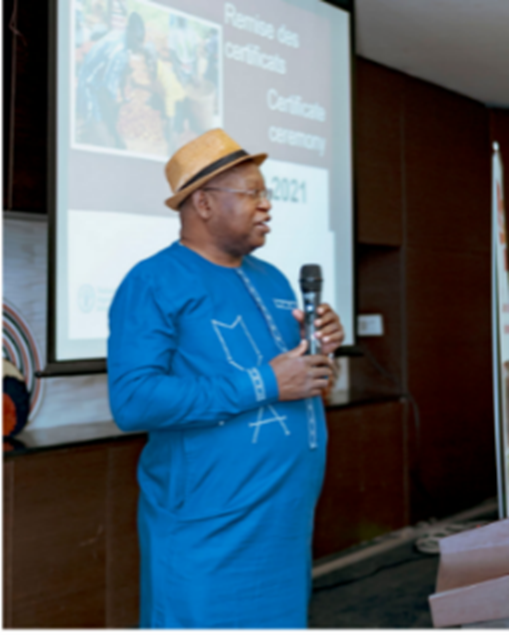 Ongolo Maximin
Ongolo Maximin
In charge of the "National Strategy for Inclusive Finance" programme, Ministry of Finance, Cameroon
What was the most interesting and useful aspect of the FAR training?
I could see the importance of agricultural and digital financial services. The speakers all have a proven track record in skills transfer. The combination of theory and practice with case studies, simple and effective exercises, webinars and quizzes encouraged active participation.
What was the advantage of a hybrid programme (online and then in-person)?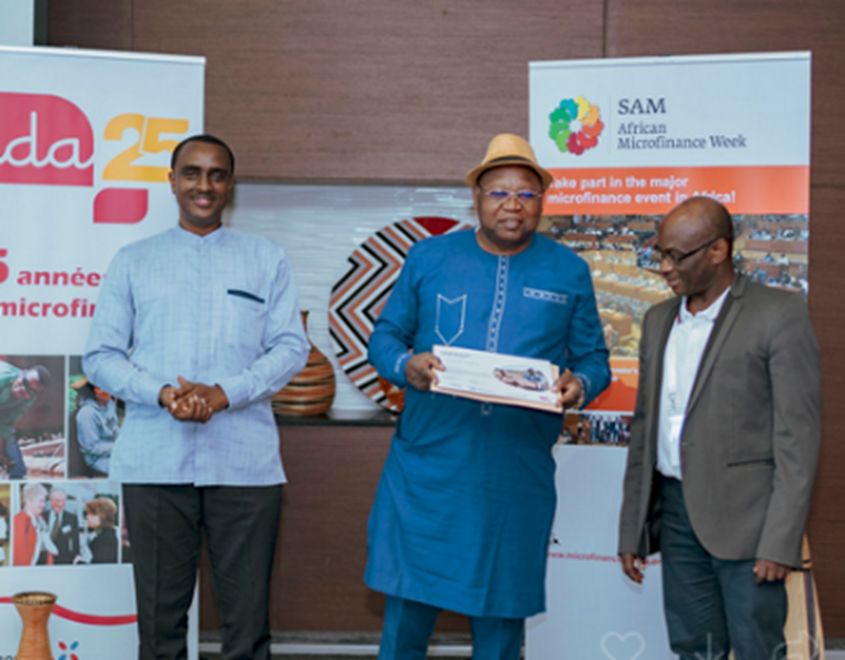
I gained knowledge in agricultural and rural finance, as well as in digital finance, as I learned to use a virtual job placement platform.
The online training was useful during the Covid-19 period. As for the face-to-face format, it facilitates interaction between participants. I expected the FAR programme to provide me with quality training that would enable me to face the challenges we will face in the future in promoting rural financial services. This has been achieved.
What aspects of the training have you applied since the training?
As a programme officer in a structure that works to promote financial inclusion, I immediately put into practice what I had learned during the training. In particular, I participated in the revision of the national strategy for inclusive finance in Cameroon by contributing to the definition of the strategic axes relating to digital finance and access to agricultural financial services. And since November 2021, I have been participating in a project with UNDP to digitise six agricultural value chains in Cameroon (onions, rice, cotton, milk, cattle and cocoa).
FAR 2021 e-learning

 Olivier Kwizera
Olivier Kwizera
Agri-Project Manager, AB Bank Rwanda PLC (Rwanda)
What was the most interesting, surprising, and useful aspect of the FAR training?
FAR online training provides comprehensive learning opportunity for agricultural finance, with summary reading materials and further readings to deepen the understanding of agricultural finance; the training is conducted at each participant’s own pace but extra period was added to facilitate all participants complete the program (flexibility).
How are you going to apply what you learned from this training in your organisation?
The acquired knowledge from FAR training, I will apply it to improve the loan product designed by my Financial Institution in terms of blending it with crop and livestock insurance, as well as designing more products for various interesting value chains.
If you had to summarise your experience in one sentence, what would you say?
FAR training improved my knowledge and understanding in agricultural finance in general through direct learning from courses as well as through others’ experiences.
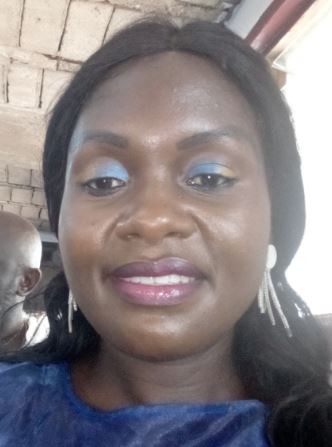 Asano Mah Brenda Achangoh
Asano Mah Brenda Achangoh
Branch Manager, Rural Investment Credit S.A (Cameroon)
What was the most interesting, surprising, and useful aspect of the FAR training?
The interactive platform for questions and answers with the opinion of participants and facilitators was so interesting. What was surprising to me was the automatic update of points on the platform each time an exercise was accomplished and the deduction of points for delay in accomplishment of task. A useful aspect I noted was the webinar seminars which could bring participants to the classroom as though it was face to face.
How are you going to apply what you learned from this training in your organisation?
I will apply what I learnt in my organisation, with the assistance of top management, as follows:
- Training seminars and workshops could be organised to build the capacity of other staff;
- I will do writeups so staff could read even at free time;
- Meetings could be held with top management so as to present positive proposals.
If you had to summarise your experience in one sentence, what would you say?
I had a great time with the E-learning interactions, exchange of ideas and experiences, work combined with studies, assignments and meeting datelines.it was great!
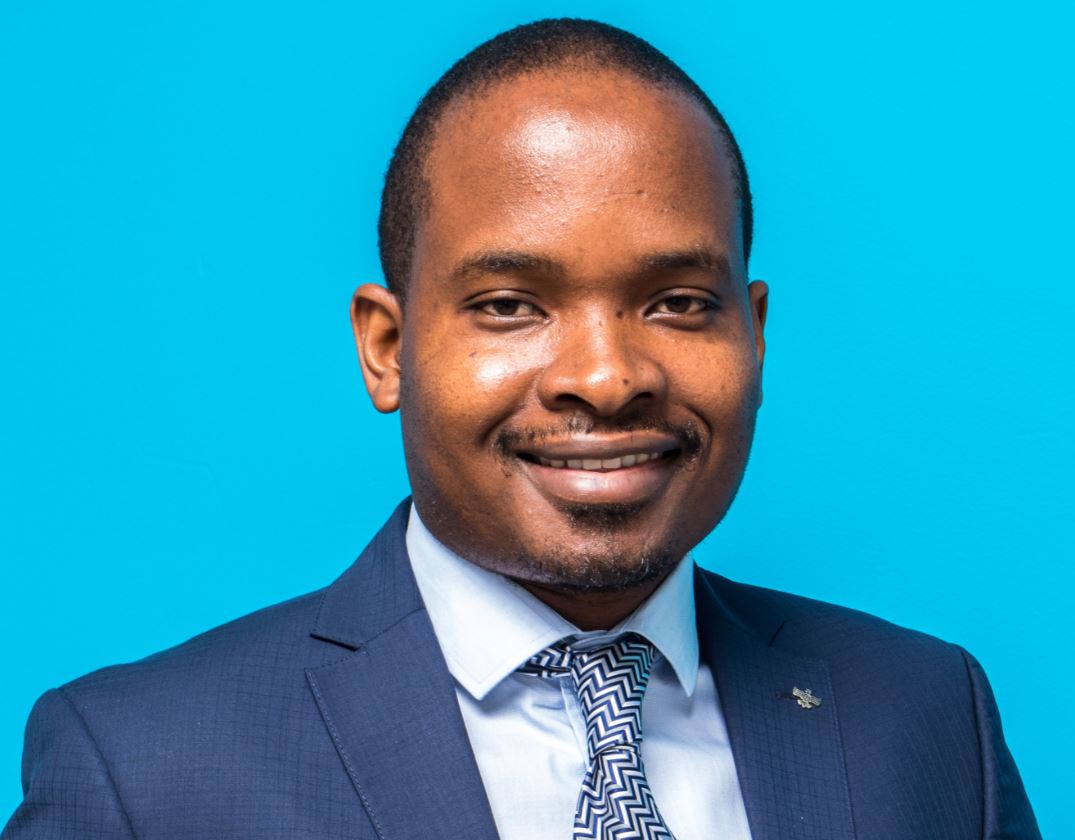 Brian Nyabadza
Brian Nyabadza
Managing Director, Qupa Microfinance (Zimbabwe)
What was the most interesting, surprising, and useful aspect of the FAR training?
The most interesting aspect of the training were the insights on how to understand and cater for the various value chain players in a manner that ringfences the whole financing mechanism. While I had previously been exposed to this approach, the in-depth discussions as presented in the reading material really drove the point home, making me realise the genuine opportunity therein. A very useful thing about the course was the introduction to FAOSTAT and FINDEV databases. What was surprising was the manner in which agricultural insurance was dismantled for the comprehension of even a layman.
How are you going to apply what you learned from this training in your organisation?
I have already begun using the product design concepts to review and update my institution's product offering. A key insight I have already used so-far is the fact that products are difficult to develop against limited customer knowledge. Our approach has as such evolved to include the customer feedback quite a lot and then iterating on the prototype. As a result, we have recently upgraded our horticultural loan product making it a bullet repayment as harvest as opposed to monthly installments that assumed other non farm income. We are struggling a bit with the core banking system and I think in the medium term it will need a replacement.
If you had to summarise your experience in one sentence, what would you say?
The training was very insightful, the content was relevant and largely implementable.
FAR 2020 e-learning

"The FAR training was very interesting and useful. All the topics covered were of major concern for the microfinance sector in general and for our institution in particular. The design of agricultural financing products, the way the sector can innovate through digital financial services and the identification and management of agricultural risks have been very important subjects for our institution. Following this training, we plan to set up a committee to reflect on the actions that can be implemented in order to improve our services in the agricultural sector and the rural world."
Bouthainata Abdillahi, Research Manager, Meck Moroni, Comoros
"Following the FAR training, our institution, which does not have an agricultural product, is going to carry out a feasibility study in the field. Having received this training, we will formulate recommendations to facilitate the effective implementation of such a product within a reasonable period of time."
Adama Ouattara, Portfolio Manager, BAOBAB, Burkina Faso
"The most surprising aspect of the FAR training is the interaction with the platform and the perfect management of both the material and didactic resources we were given. I saw myself as in a real classroom. The flexibility of the platform allowed for fruitful, rich and varied exchanges between participants and trainers. Personally, I would summarize this experience as a real springboard for our institution's capacity building in the field."
Abou Coulibaly, Country Operations Manager, First Micro Finance-West Africa Agency, Côte d'Ivoire
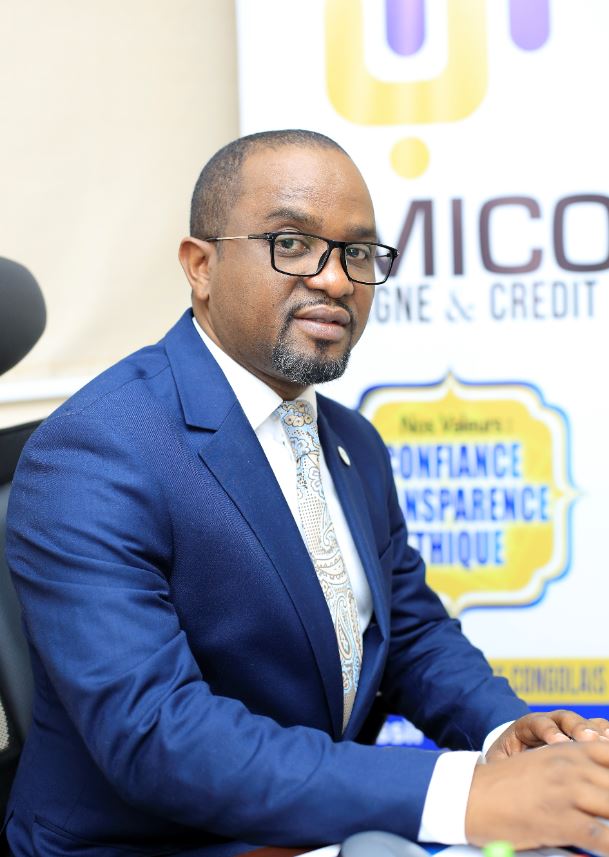 Pacifique Ndagano
Pacifique Ndagano
Managing Director of SMICO
What was the most interesting, surprising and useful aspect of the FAR training?
I was very interested in the online organisation of the platform that facilitates the training in such a way that you don't feel like being at a distance. The follow-up of each participant is an impressive aspect of your e-learning approach and the pragmatic part of the case studies and individual exercises remain very useful parts of the training. For the first time I was able to use and exploit the different data from global findex and Faostat to better understand the market.
How did you find the interaction with the other participants?
The forum is a very interesting space that allowed me to benefit from each other's experiences (participants and facilitators). The part of the presentation of the participants also gave me an idea of the quality of the participants. This is an aspect that motivated my participation more because I benefit from the exchanges and experiences of others.
If you had to sum up your experience in one sentence?
It is a pragmatic training course rich in experience.
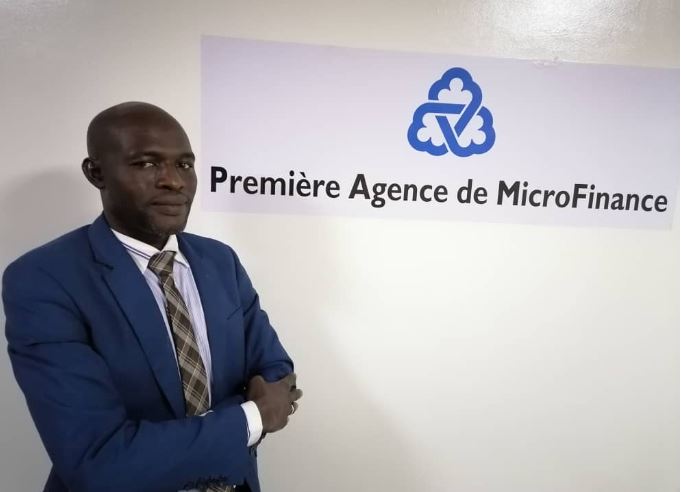 Badomba Ouattara
Badomba Ouattara
Master's degree expert in microfinance and inclusive finance (Frankfurt School of Finance and Management, Germany)
What was the most interesting, surprising and useful aspect of the FAR training?
Let me take my hat off to you and congratulate you all for holding this training. Indeed, despite the context made difficult by the effects of the COVID-19 pandemic, you have made this second edition (FAR) a reality and even a great success after the first edition held in 2019 in Ouagadougou, Burkina Faso.
I note that the most interesting and surprising aspect of this first introductory phase remains the continuity of the training activities despite the context of the pandemic. This shows that ADA is still developing and applying a business continuity plan, which is a very important aspect to consider. Another element to take into account is the adaptability of the organisers to the new context by implementing a collaborative learning platform that includes all the conveniences, flexibilities, flexibilities and containing aspects of learner performance monitoring that works in real time with reports from the participant.
Another element to be taken into account is the interactivity of the platform which includes all the material and didactic resources, as if the learner were actually in a classroom. This flexibility of the platform has encouraged fluctuating, rich and varied exchanges between the learners and 'speaker' trainers on the one hand, and between the participants themselves on the other.
How did you find the interaction with the other participants?
Personally, I found the interaction with the other participants very rich and enriching in many ways. As the name of the platform indicates, it really is an interactive and collaborative platform between participants. This session placed particular emphasis on collaboration between participants to share experiences from MFIs everywhere. I noticed that most of the participants were either managing directors, heads of department, heads of service or operational managers who have a lot of practical experience and are motivated to share their experience with the other participants. This made a big impression on me because I read with interest all the interventions of the participants and the responses of the trainers.
In view of the relevance of certain experiences shared by some participants and to make the most of this first session, I personally enjoyed documenting all the relevant and rich experiences shared by the participants in order to consult them later and implement certain practices in our institution.
If you had to sum up your experience in one sentence?
The FAR2020 online training is a real learning platform, collaborative, flexible and convenient, easy to use with all the material and pedagogical resources.
Read more stories on the FAO website
FAR 2019 e-learning and in-person

"The FAR programme set up thanks to ADA makes it possible to approach agricultural and rural finance in a holistic manner and to propose solutions that can guide the actors involved or interested in serving the populations concerned. The course developed by CGAP on digital financial services for smallholder farmers, which I am pleased to deliver, provides an insight into how new technologies can realistically contribute to accelerating financial inclusion in a cost-effective manner for financial service providers and under what conditions. The richness of the programme is a great opportunity!"
Corinne Riquet-Bamba, Financial inclusion and digital finance expert, independent consultant
"This is definitely one of the best training courses available today for any MFI, regardless of its size, that wants to make its agricultural financial services offering more professional and profitable. The training allowed us to review our range of agricultural financial services, to better understand the importance of specialising the staff who manage the agricultural portfolio, to reshape our current digital collection strategy and to allow the Network's recently established Risk Management Committee to integrate the most appropriate agricultural risk management tools into its work plan."
Ousmane Thiongane, Director General U IMCEC / Senegal
"This training allowed me to consolidate my knowledge in agricultural and rural finance on the mechanisms of financing value chains that must combine technical support before and after financing. I learned that "instead of financing only the activity, it is better to finance the farmer's project in its entirety, integrating all his needs for the whole year". Because apart from the activity, the farmer has other needs, such as food, health, etc."
Samuella Tine, MEC FADEC NJAMBUR
"I recommend the Agricultural and Rural Finance (ARF) programme by ADA to all decentralised financial services that would like to develop, strengthen or improve their financial services offer in agricultural and rural areas. This training not only prepares participants to manage the current challenges of the sector but also anticipates future challenges such as climate change, value chain finance, savings in the rural sector, agricultural intensification and portfolio performance in agricultural finance. These two weeks of training structured in two tracks allowed me to better structure my approach to all the topics covered. After the training, I drew up a programme for sharing and applying the new knowledge in collaboration with the other agents in my structure."
Adama Camara, President of APSFD Mali
The word from the pedagogical advisors of the programme

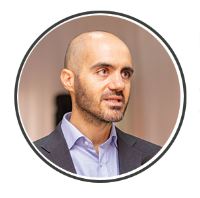 Massimo Pera
Massimo Pera
Value Chain and Rural Finance Project Coordinator, FAO (also FAR Programme)
« I think this new online version of the training program is a perfect fit for the needs of the participants who will be taking the course, whether they are MFIs, banks, credit unions, technical support agencies/granters, etc.". The course essentially aims to provide elements of an answer to the following question: "How to respond to the needs of actors in agricultural value chains (farmers, smallholders and agro-SMEs), which have a great potential for growth, but which do not have access to adapted financial services". By merging an online and a face-to-face course, participants will have the opportunity to identify key issues and solutions that can help increase access to financial services for agriculture. »
 Soulemane Djobo
Soulemane Djobo
Head of Technical Support to Microfinance Institutions at ADA (also pedagogical referent of the FAR programme)
« The e-learning format chosen this year for the agricultural and rural finance (FAR) training because of Covid-19, aims at maintaining contact with stakeholders in the financing of agricultural sectors and value chains. The selected modules are essential because they constitute the backbone of the fundamentals in agricultural financing. While waiting for the face-to-face format, the e-learning format is intended to be a continuous stream to draw the attention of financial intermediaries to the constant need to know the market and to manage the risks by using the digital channels which are increasing in power. »


